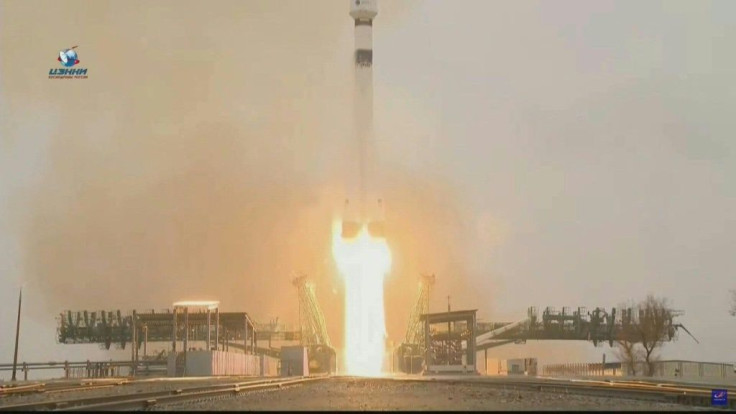Russian Military Satellite With 'Z' Marking Likely To Burn Up In Atmosphere: Experts
KEY POINTS
- Jonathan McDowell expressed doubt whether the satellite was "just a mockup"
- The satellite will completely burn up as it is said to have a mass under 1 tonne
- The purpose of the payload was classified though many said it was a spy satellite
The secret military satellite with "Z" markings, launched by Russia into orbit, is likely to burn up in the atmosphere Tuesday. The satellite Kosmos-2555 was fired using an Angara-1.2 rocket from the Plesetsk Cosmodrome on April 29.
According to Russian astro-blogger Anatoly Zak and American astronomer Jonathan McDowell, the satellite has not made a single orbital maneuver, reported Radio Svoboda, the Ukrainian website of Radio Free Europe.
"A classified payload, delivered into orbit in the first launch of the Angara-1 rocket last month, appears to be inactive and will fall back to Earth without maneuvers," Zak posted on Twitter.
A classified payload, delivered into orbit in the first launch of the Angara-1 rocket last month, appears to be inactive and will fall back to Earth without maneuvers: https://t.co/GaWnb1o1qh pic.twitter.com/rn3eALKnH7
— Anatoly Zak (@RussianSpaceWeb) May 14, 2022
Confirming the news, McDowell posted, "The Kosmos-2555 payload, launched on the Angara-1.2 test flight on Apr 29, has not made any orbital maneuvers and is now expected to make an uncontrolled reentry on Tuesday." He also expressed doubt whether it was "just a mockup and not an operational sat."
The Kosmos-2555 payload, launched on the Angara-1.2 test flight on Apr 29, has not made any orbital manuevers and is now expected to make an uncontrolled reentry on Tuesday (cyan lines show apo/peri heights). I'm now wondering if it was just a mockup and not an operational sat pic.twitter.com/ih6o4GG7p5
— Jonathan McDowell (@planet4589) May 16, 2022
Mc Dowell said that though it is unclear where Kosmos-2555 will come down. "It is thought to have a mass under 1 tonne, so nothing to be worried about - it will almost completely burn up," his tweet added. "The small pieces will entirely melt. Bigger pieces will be slowed," he added in the thread.
However, the Russian Ministry of Defense did not comment on the situation with the satellite deorbiting.
Russian authorities released multiple warnings to air and sea traffic, indicating launches over the Barents Sea between April 26 and 27. But, the launch happened only on April 29.
While announcing the successful launch of the satellite, the Russian Ministry of Defense had said that communications were being maintained with Kosmos-2555. They added that the satellite's telemetry and onboard systems are working normally, and it has been launched into the target orbit.
However, the purpose of the satellite was classified though many speculated that it was a small reconnaissance satellite used for the Ukraine mission. The altitude and inclination of the orbit of Kosmos 2555 also prompted the satellite watchers to speculate it might be the next in a line of small Russian military reconnaissance spacecraft, known as EMKA. Russia launched the first two EMKA satellites in 2018 and 2021.
The launch also garnered much attention after Russian ground crews emblazoned the letter "Z" on the Angara rocket’s payload fairing. Kremlin has been using the insignia on Russian military vehicles participating in the invasion of Ukraine.

© Copyright IBTimes 2025. All rights reserved.




















